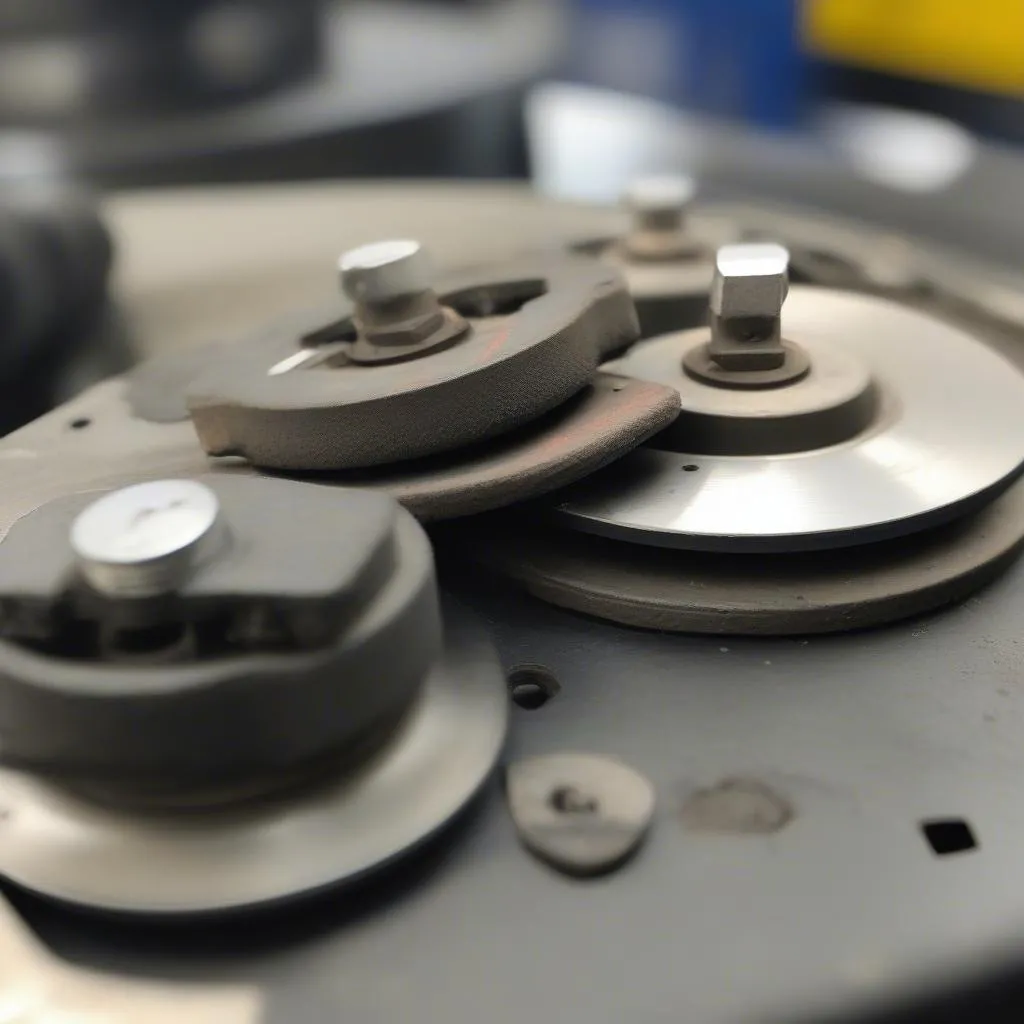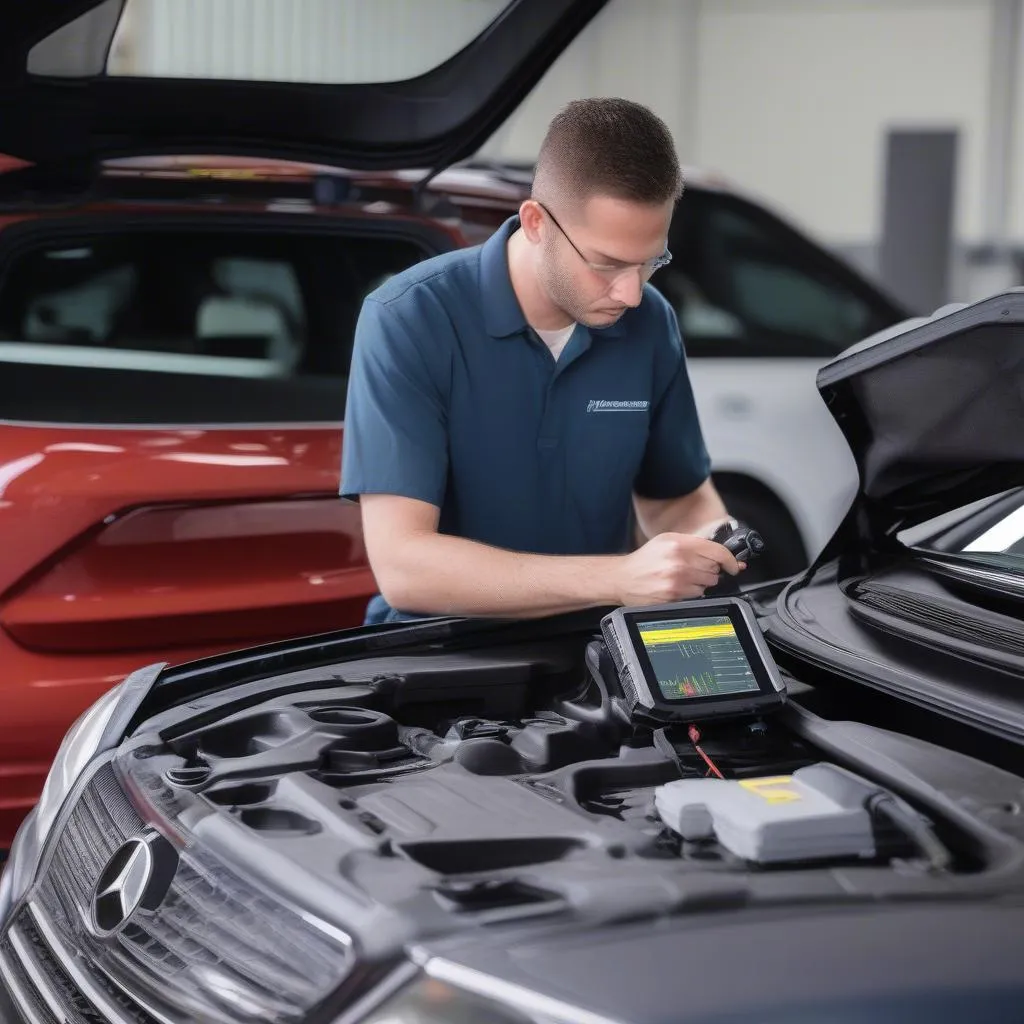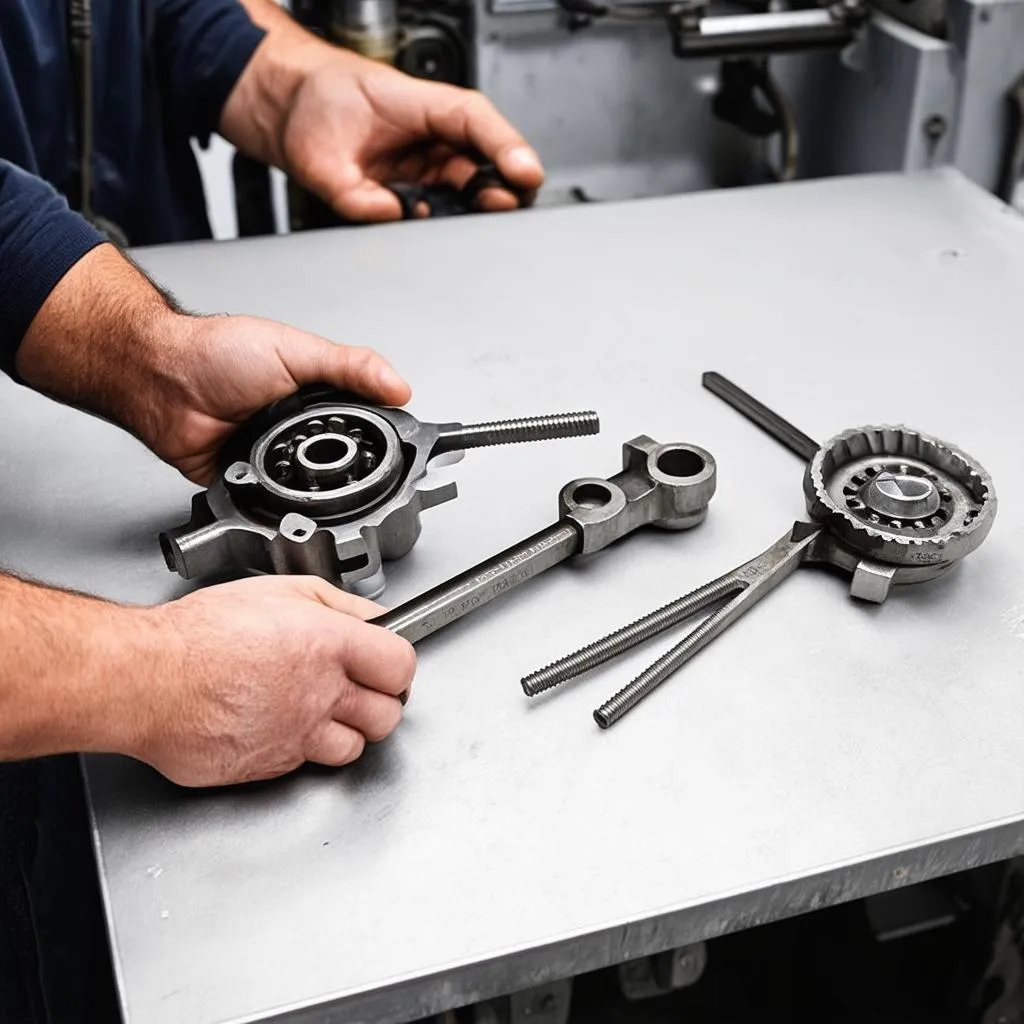Mercedes-Benz vehicles are known for their luxury, performance, and cutting-edge engineering. However, even these automotive marvels require regular maintenance, including brake repairs. If you’re a Mercedes owner, you know that keeping your car in top shape can sometimes come with a hefty price tag. One common question we hear is, “How much does it cost to fix brakes on a Mercedes?” Let’s explore the factors influencing brake repair costs and provide insights into what you can expect.
Factors Affecting Mercedes Brake Repair Costs
Several factors contribute to the cost of fixing your Mercedes brakes:
1. Model and Year: Brake system complexity varies across Mercedes models and model years. For instance, newer models often have advanced braking technologies like electronic parking brakes or brake assist systems, which can increase repair costs.
2. Type of Repair: Are you dealing with worn-out brake pads, warped rotors, or a more complex issue like a malfunctioning ABS control module? The type and extent of repairs needed significantly impact the overall cost. Simple brake pad replacements are less expensive than extensive repairs involving hydraulic lines or calipers.
3. OEM vs. Aftermarket Parts: Mercedes-Benz recommends using Original Equipment Manufacturer (OEM) parts for optimal performance and longevity. OEM parts are typically more expensive than aftermarket alternatives but often come with warranties and ensure compatibility with your vehicle.
4. Labor Costs: Labor rates for Mercedes repairs tend to be higher than those for other car brands. This difference is due to the specialized training and expertise required to work on these sophisticated vehicles.
Common Brake Problems and Their Associated Costs
Here’s a breakdown of common brake issues and estimated repair cost ranges:
– Brake Pad Replacement: $200 – $500 per axle (depending on model and pad material)
– Brake Rotor Resurfacing or Replacement: $300 – $800 per axle
– Brake Caliper Replacement: $400 – $1,000 per caliper
– Brake Fluid Flush: $100 – $200
– ABS Control Module Replacement: $1,000 – $3,000 or more
Expert Insight: “Using high-quality brake pads is crucial for Mercedes vehicles,” says automotive expert Emily Carter, author of “The Complete Guide to Mercedes Maintenance.” “While they may cost more upfront, they typically last longer and provide superior braking performance, potentially saving you money in the long run.”
Recognizing Brake Problems
Identifying brake problems early can save you money and ensure your safety. Be on the lookout for these warning signs:
- Squealing, squeaking, or grinding noises when braking
- Vibrations or pulsations in the brake pedal
- A soft or spongy brake pedal feel
- The vehicle pulling to one side when braking
- Illuminated brake warning lights on the dashboard
If you experience any of these symptoms, it’s essential to have your brakes inspected by a qualified mechanic specializing in Mercedes-Benz vehicles.
 worn brake pads
worn brake pads
FAQs About Mercedes Brake Repairs
Q: How often should I replace my Mercedes brake pads?
A: Brake pad lifespan varies depending on driving habits and conditions. However, it’s generally recommended to have them inspected every 10,000-12,000 miles and replaced when they reach the minimum thickness specified in your owner’s manual.
Q: Can I replace my Mercedes brakes myself?
A: While it’s technically possible to replace brake components yourself, it’s recommended to have this work done by a qualified mechanic, especially if you’re not experienced with automotive repairs. Mercedes brakes are complex systems, and improper installation can compromise your safety.
Q: What is brake fluid, and why is it important?
A: Brake fluid is a hydraulic fluid that transmits force from your brake pedal to the brake calipers, activating the brakes. Over time, brake fluid can absorb moisture, reducing its effectiveness and potentially leading to corrosion within the braking system. Regular brake fluid flushes are crucial for maintaining optimal braking performance.
The Cardiagtech Advantage
For advanced diagnostics and troubleshooting of your Mercedes brake system, consider CARDIAGTECH products. Our diagnostic tools provide detailed insights into your vehicle’s electronic systems, helping you identify and address brake-related issues accurately.
 Mercedes-Benz brake system diagnostics
Mercedes-Benz brake system diagnostics
Conclusion
Keeping your Mercedes brakes in optimal condition is crucial for your safety and the longevity of your vehicle. By understanding the factors that influence repair costs and recognizing the signs of potential problems, you can make informed decisions about your Mercedes’s brake maintenance. Regular inspections, timely repairs, and using quality parts are essential for ensuring a smooth and safe driving experience. Remember, when it comes to brake repairs, it’s always best to consult with a qualified Mercedes-Benz mechanic to receive an accurate diagnosis and reliable repair services.


